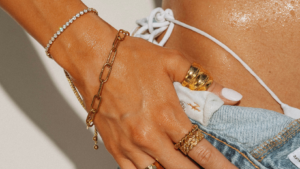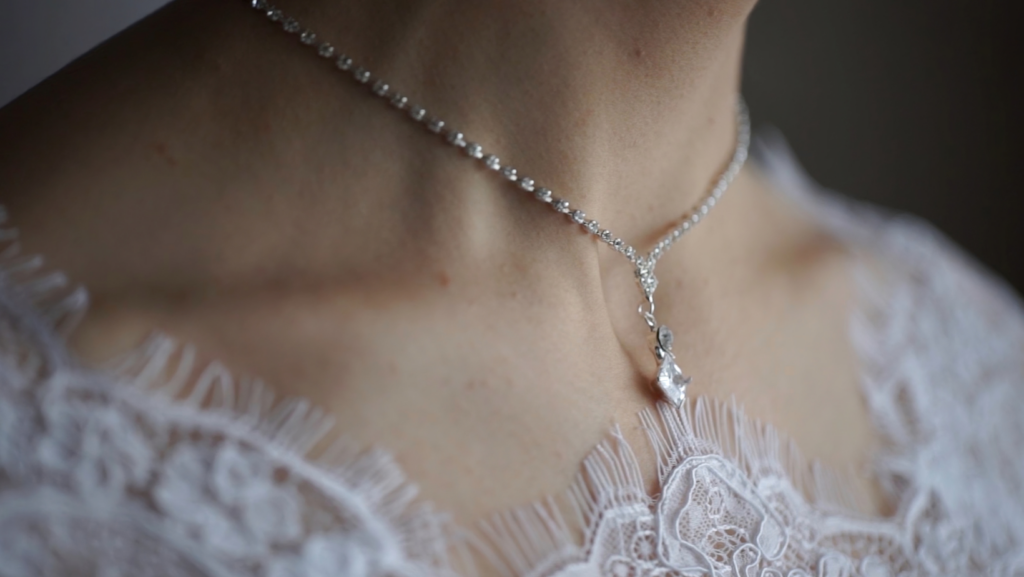Ever slipped on a favorite ring or bracelet, only to find a green stain on your skin later? It’s a common occurrence that leaves many puzzled. This article dives into the intriguing science behind why does some jewelry turn your skin green.
From chemical reactions to the quality of metals used, there’s a fascinating world to uncover. So, if you’ve ever wondered why your skin sometimes looks like it’s auditioning for a role in the Incredible Hulk after wearing jewelry, you’re about to discover the answer. Stay tuned as we unravel this mystery, one green stain at a time.
Why Does Some Jewelry Turn Skin Green
 Unraveling the mystery of why does some jewelry turn skin green, starts with understanding the underlying science and the role of specific metals. Skin reaction to certain jewels emanates from corrosion, prompting color alteration. For instance, exposure of cheap metal to sweat and air accelerates oxidation, leaving a green tint.
Unraveling the mystery of why does some jewelry turn skin green, starts with understanding the underlying science and the role of specific metals. Skin reaction to certain jewels emanates from corrosion, prompting color alteration. For instance, exposure of cheap metal to sweat and air accelerates oxidation, leaving a green tint.
Common culprits behind green-stained skin include copper, nickel, and brass. More so, jewelry made from these metals, even in minimum quantities, can cause discoloration.
Recognizing Jewelry that May Cause Skin Discoloration
To avoid the unwelcome surprise of discolored skin, recognizing potential culprits is crucial. Let’s delve into the aspects to consider.
Uncover jewelry’s material composition, as skin discoloration often arises from metals like copper and nickel.
The Role of Body Chemistry in Green Discoloration
Understanding body chemistry helps demystify green discoloration from jewelry. It’s more intricate than just metal quality and includes aspects like skin pH and personal sensitivities.
High skin pH levels can foster the oxidation process, accelerating the green discoloration when metals like copper, nickel, and brass come into contact with the skin.
Personal Allergies and Sensitivities
Likewise, personal allergies and sensitivities can provoke rapid discoloration. Precise reactions vary, but common culprits include copper and nickel.
How to Prevent Skin Discoloration Caused by Jewelry
Prevention of skin discoloration caused by jewelry connects back to an informed choice of materials and appropriate protective measures.
Opting to coat one’s jewelry with a clear lacquer or nail polish creates a protective barrier, minimizing metal-skin contact and hence, discoloration.
Choosing Hypoallergenic Jewelry
Incorporating nickel-free, hypoallergenic jewelry into the repertoire reduces the risk of skin discoloration, considering people’s usual sensitivity to nickel.
Safe Practices for Wearing Jewelry

Augmenting your day-to-day look with jewelry adds flair, yet it requires careful consideration. Here, let’s explore practical steps for ensuring your jewelry wearing habits lead to less skin greenness.
Maintaining skin cleanliness along with the hygiene of jewelry pieces decreases their potential to discolor skin. Always remember, clean skin, clean jewelry—for a green-free experience.
Guidelines for Wearing and Removing Jewelry
To avoid skin discoloration and to understand how does some jewelry turn your skin green, always put jewelry on last during your dressing routine and remove it first when unwinding—essentially dodging contact with cosmetics, sweat, or other chemicals.
So, it’s clear that the green discoloration on your skin from jewelry isn’t a cause for alarm. It’s simply a reaction between your skin and the metals, particularly copper, nickel, and brass found in your jewelry. Your body chemistry, sweat, and air exposure play significant roles in this process. To keep your skin clear of green stains, consider the material composition of your jewelry and opt for higher-grade or hypoallergenic options. Remember, maintaining skin cleanliness and hygiene is key. Adhering to the practical tips provided, such as when to wear and remove jewelry, can go a long way in preventing skin discoloration. It’s all about being informed and making smart choices when it comes to your jewelry.

